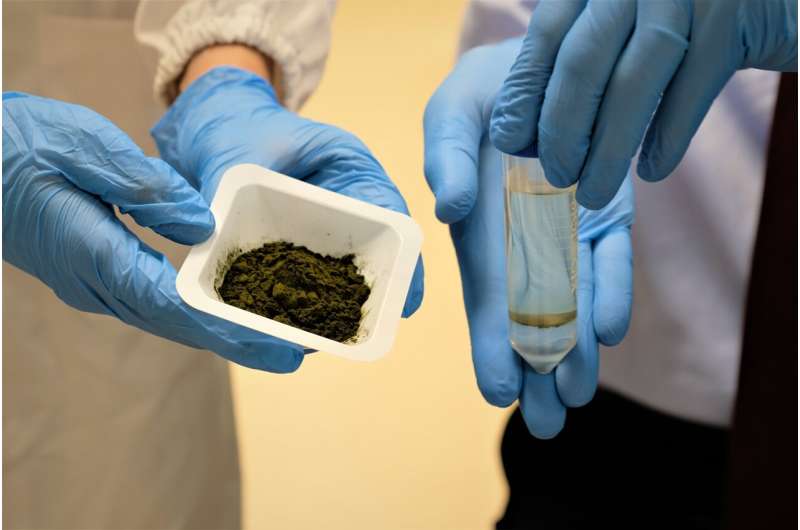Oils from microalgae could replace palm oil in food production
Date: 28.3.2022
A team of scientists led by Nanyang Technological University, Singapore (NTU Singapore) has developed a method to effectively produce and extract plant-based oils from a type of common microalgae.
 Palm oil is the world's most popular vegetable oil, featuring in around half of all consumer products, and plays a central role in a large range of industrial applications. Farmers produced 77 million tons of palm oil for the global market in 2018, and that is expected to grow to 107.6 million tons by 2024.
Palm oil is the world's most popular vegetable oil, featuring in around half of all consumer products, and plays a central role in a large range of industrial applications. Farmers produced 77 million tons of palm oil for the global market in 2018, and that is expected to grow to 107.6 million tons by 2024.
However, the rapid expansion of oil palm plantations is blamed for massive deforestation in several countries, destroying the habitat of endangered native wildlife.
To produce the oils, pyruvic acid, an organic acid that occurs in all living cells, is added to a solution with the algae Chromochloris zofingiensis and exposed to ultraviolet light to stimulate photosynthesis. The NTU team has separately developed cost-cutting innovation to replace the microalgae culture medium with fermented soybean residues while improving the yield of microalgae biomass.
After 14 days, the microalgae is washed, dried, and then treated with methanol to break down the bonds between the oils and the algae protein, so that the oils can be extracted. The team has also developed green processing technology to extract efficiently microalgae-derived plant oils.
To produce enough plant-based oil to manufacture a store-bought chocolate bar that weighs 100 grams, 160 grams of algae would be required.























